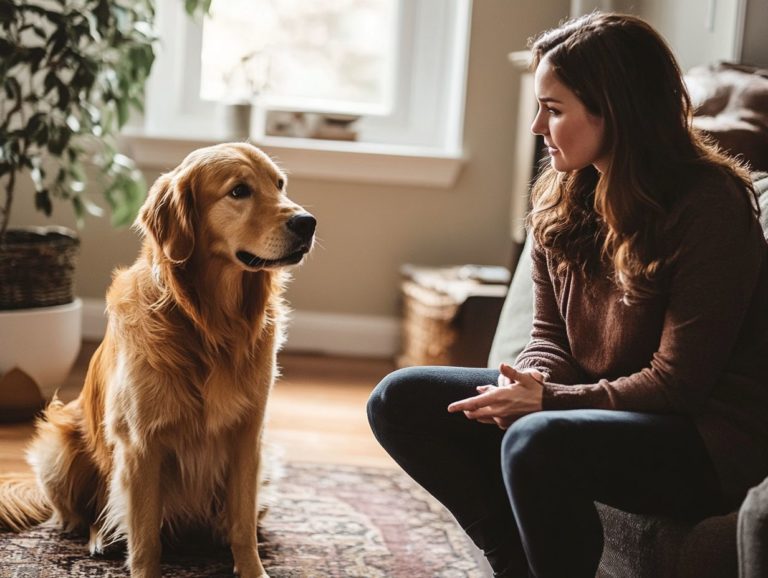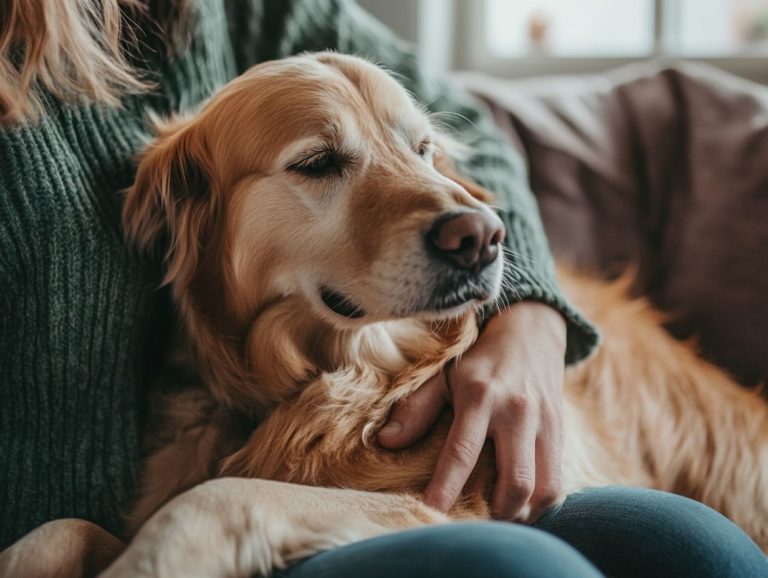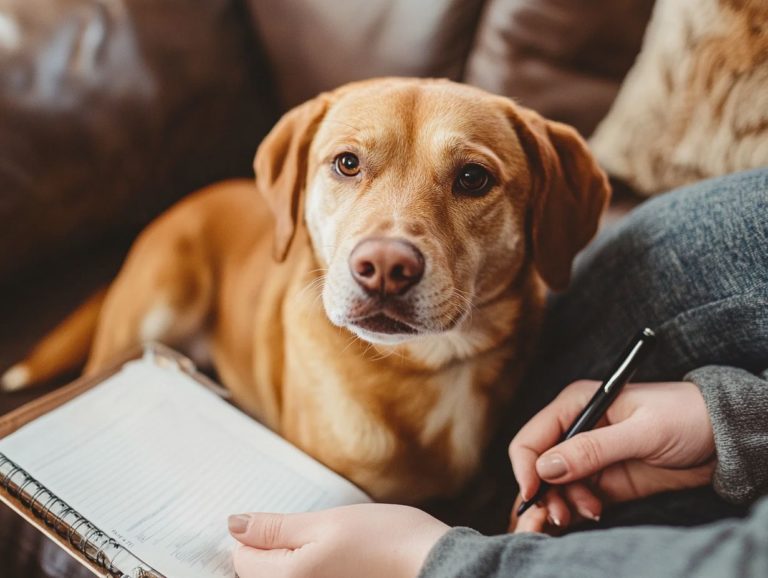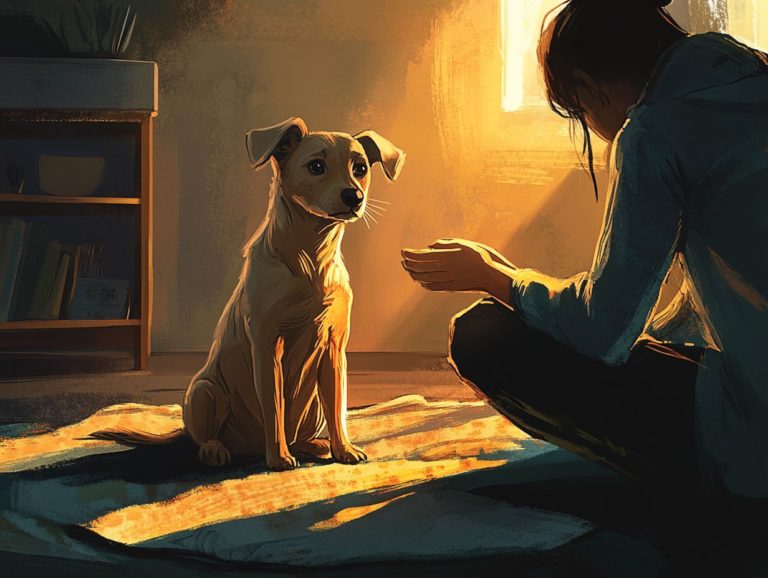How to Build Trust with a New Pet Specialist
When it comes to caring for your beloved pets, trust is the cornerstone of an effective relationship between you and the specialists you choose, including your veterinarian.
Whether you re searching for a veterinarian, groomer, or trainer, establishing a strong foundation of trust can profoundly affect your canine’s well-being.
This article explores the importance of trust in these relationships and provides practical tips on how to cultivate and maintain it, particularly through effective communication.
From fostering open communication to setting clear expectations, you ll find guidance on every step of your pet care journey, ensuring a harmonious partnership that prioritizes your furry friend s happiness and mental well-being.
Contents
- Key Takeaways:
- Understanding the Importance of Trust in Pet Care
- Building Trust with a New Pet Specialist
- Maintaining Trust in the Long-Term
- Frequently Asked Questions
- 1. How can I build trust with a new pet specialist?
- 2. What are some key factors in building trust with a new pet specialist?
- 3. Can I build trust with a new pet specialist if I have had a negative experience with one in the past, especially considering the emotional scars that may linger?
- 4. Is it important to involve my pet in the trust-building process with a new specialist, especially in terms of socialization?
- 5. How long does it typically take to build trust with a new pet specialist, and how can I expedite this process through training?
- 6. What should I do if I have concerns or doubts about my pet specialist’s trustworthiness, particularly regarding their veterinary practices?
Key Takeaways:
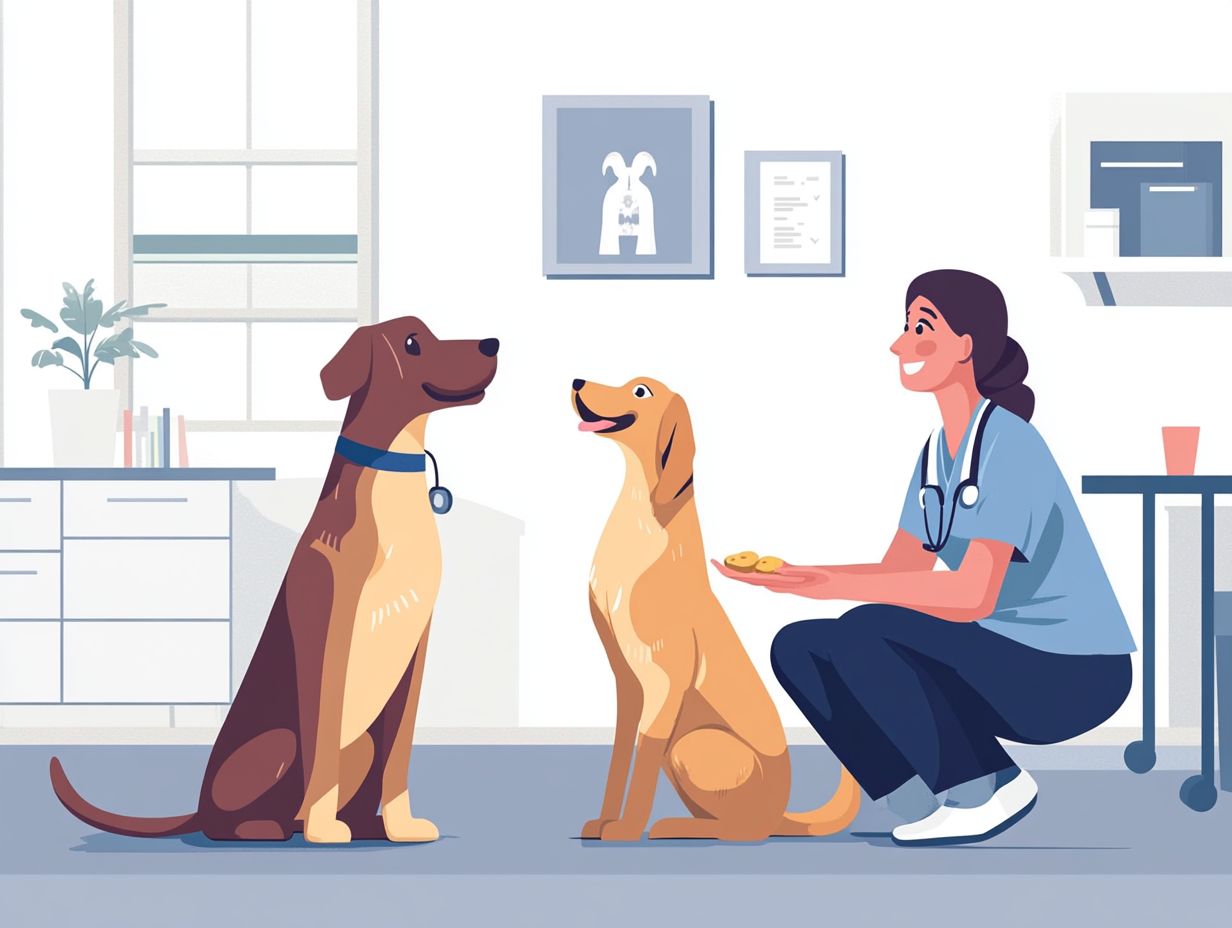
- Communication and transparency are essential in building trust with a new pet specialist.
- Meeting and observing the specialist can help establish a strong foundation for trust.
- Consistency, open communication, and ongoing feedback are key to maintaining trust in the long term.
Understanding the Importance of Trust in Pet Care
Trust is essential in pet care. It strengthens the bond between pet owners and veterinary practices. Trust forms the cornerstone of effective communication between you and your veterinarian, cultivating an environment where your pet feels safe and secure.
This is particularly crucial for nurturing your pet’s confidence, especially when they are grappling with fear, anxiety, or previous emotional traumas. By establishing a consistent routine and fostering positive associations, you can significantly enhance your pet s mental well-being and behavior, ensuring they receive the utmost care possible.
Why Trust is Crucial in the Pet-Specialist Relationship
Trust plays a pivotal role in the relationship between you and your pet’s specialist. It impacts your pet’s anxiety levels and overall behavior during veterinary visits.
When your pet feels secure with a new specialist, they re more likely to be calm and open, making the examination process much smoother. Open communication is key; it creates an environment where the specialist can understand your pet’s history and past experiences.
Emotional scars from previous trauma or negative encounters can linger in your pet’s mind, causing hesitance or fear when faced with someone new. By engaging with both you and your pet, specialists can discuss these past experiences, effectively bridging the trust gap and fostering a more comforting experience for your furry friend.
Building Trust with a New Pet Specialist
Establishing trust with a new pet specialist requires a thoughtful approach, prioritizing clear communication and transparency at every stage of the interaction. This multifaceted strategy ensures a strong foundation for a successful relationship.
Communication and Transparency
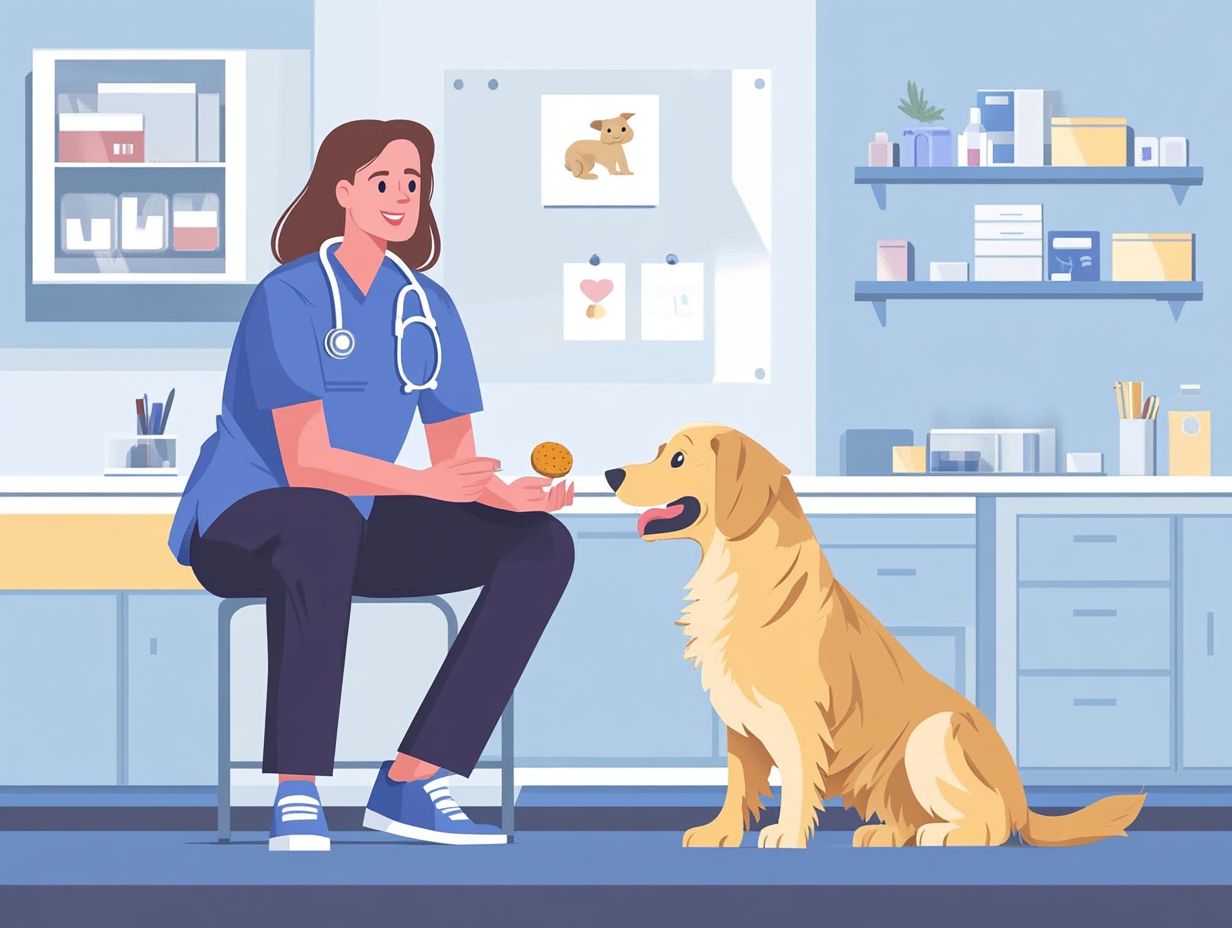
Effective communication and transparency are essential in building trust between you and your pet care specialists, ensuring you feel informed and engaged in your pet s care journey.
By incorporating active listening techniques, specialists can genuinely grasp your concerns and needs, fostering a deeper connection. When they provide clear information about procedures and potential outcomes, it demystifies the care process, allowing you to make well-informed choices.
Involving you in the decision-making process cultivates a collaborative environment where your insights are valued, reinforcing your role in your pet s health journey. This approach enhances your comfort level and leads to better adherence to recommended care and treatments.
Start building trust with your pet specialist today for a happier, healthier pet!
Meeting and Observing the Specialist
Meeting and observing the pet specialist can greatly shape your trust in their care. It gives you the chance to assess their demeanor and approach firsthand.
The subtleties in the specialist’s interactions with pets are crucial indicators that help you determine if your cherished companions are in compassionate and capable hands. When you see a specialist patiently tending to a nervous animal or engaging warmly with a playful one, it often reassures you of their expertise and empathy.
Watching this can make you feel more comfortable. It allows you to envision how your own pets will be treated during future visits, laying the groundwork for a strong, trusting relationship grounded in mutual respect and understanding.
Establishing Boundaries and Expectations
Setting clear boundaries and expectations between you and the specialists you work with is vital for building trust and ensuring effective pet care.
When you engage in open conversations about your needs and responsibilities, you reduce the chances of misunderstandings. For example, express your expectations regarding feeding schedules or behavioral training. Specialists should clarify their availability and what to do in case of an emergency.
Defining boundaries may involve limitations on the types of care provided. Understanding that a specialist may focus on training rather than addressing medical needs helps create a respectful and efficient working relationship.
Maintaining Trust in the Long-Term
Keeping trust alive between pet owners and specialists requires a dedicated approach. It hinges on the pillars of consistency, diligent follow-up, and effective communication.
This ongoing effort is essential for building lasting relationships that stand the test of time.
Consistency and Follow-Up
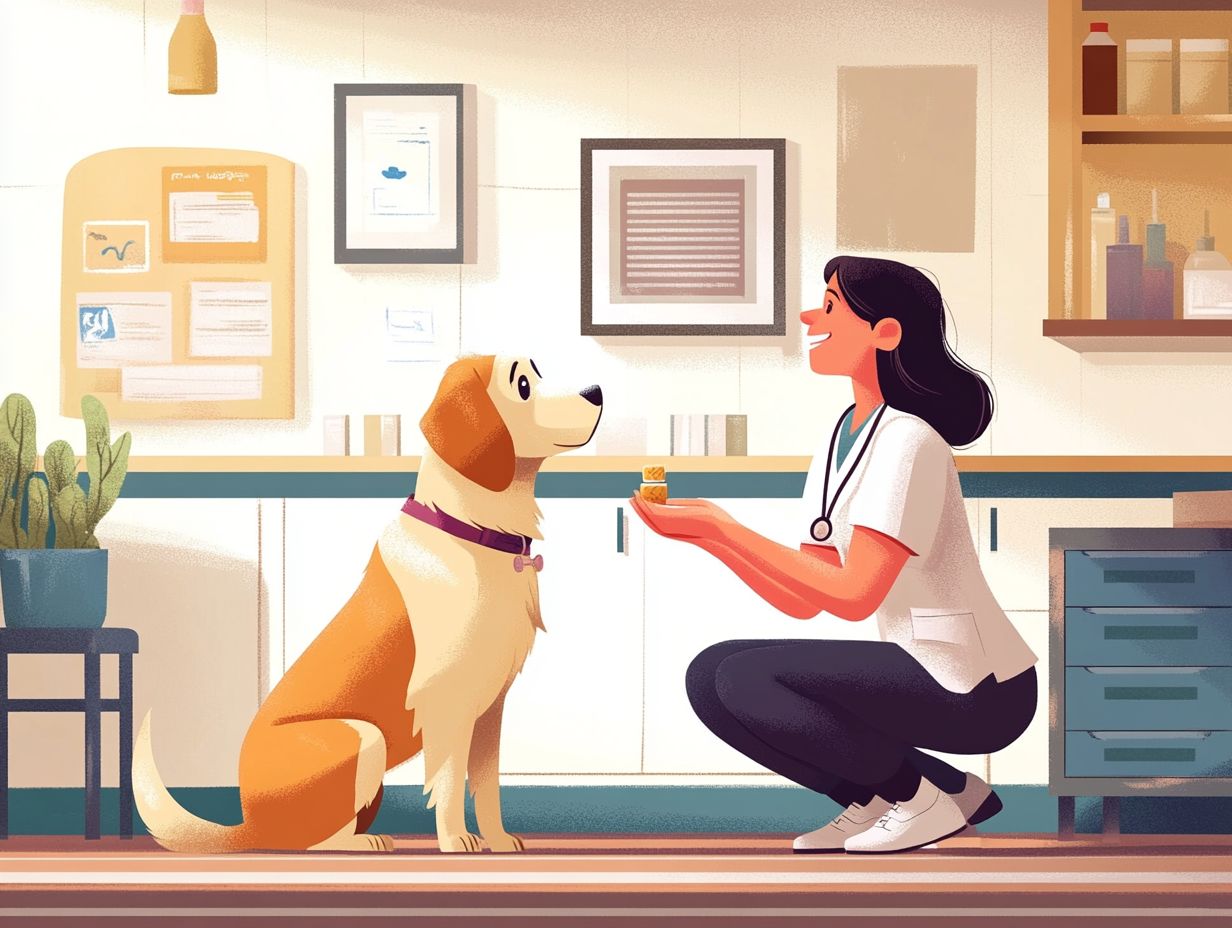
Consistency in care and regular follow-ups are essential for building trust between you and your pet specialists.
When you commit to scheduled check-ups and maintain a steady approach to your pet s healthcare routine, you lay the groundwork for reliability, benefiting both your furry friend and yourself.
This ongoing engagement creates a reassuring environment where your pet feels safe and secure. You gain valuable insights into their well-being and behavior.
Through this routine, your bond deepens, paving the way for lasting relationships rooted in mutual understanding and care. These practices streamline communication and enable you to make informed decisions about your pet’s health, enhancing the overall experience for both of you.
Open and Honest Communication
Open and honest communication is the cornerstone of building long-term trust between you and specialists. This transparency facilitates a fluid exchange of information and concerns, helping to address any anxieties promptly.
Don’t wait open up about your worries today to ensure your pet gets the best care! When you feel comfortable discussing your concerns whether they relate to your pet’s health, behavior, or specific treatment protocols you pave the way for a more effective dialogue.
By addressing concerns as they arise, specialists can offer clarity and reassurance, helping you navigate the complexities of veterinary care with confidence.
Being upfront about treatment options and potential outcomes fosters a collaborative approach to your pet’s health and well-being. When both you and the specialists engage in sincere conversations, it enhances understanding, alleviates anxieties, and ultimately leads to better care outcomes for your beloved pets.
Continued Observations and Feedback
Continued observations of your pet s behavior and actively seeking feedback from you as a pet owner are essential for building trust with the specialist throughout the care journey, especially in cases of behavioral training, which helps pets learn how to behave.
This level of attentiveness enables caregivers to customize their methods, ensuring they meet the unique and evolving needs of each animal effectively. By engaging with you, specialists can gain insights that might not be immediately obvious, allowing them to adapt care plans as needed to address anxiety or trauma.
This dynamic communication enhances your pet s overall experience and solidifies a partnership grounded in transparency and responsiveness. The success of any care strategy truly relies on this collaborative approach, creating a nurturing environment where both you and your pet feel supported and understood.
Check out this YouTube video on pet training and understanding animal behavior, brought to you by Google LLC.
Frequently Asked Questions
1. How can I build trust with a new pet specialist?
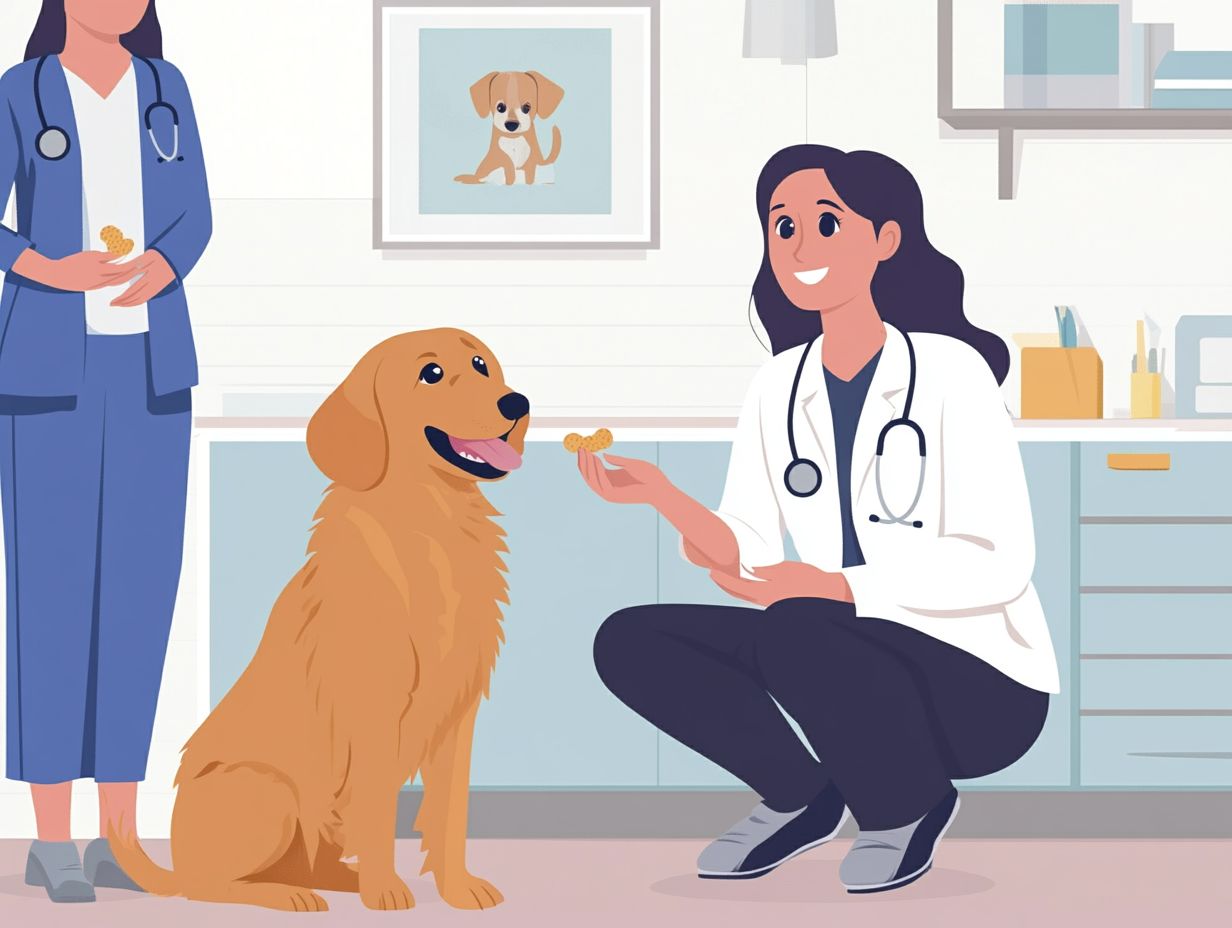
Building trust with a new pet specialist may take time, but there are steps you can take to lay a strong foundation. Start by communicating openly and clearly with the specialist. Ask questions and share your concerns, especially regarding your pet’s mental health. Understanding the role of trust in training anxious pets will help you build a good understanding and rapport.
2. What are some key factors in building trust with a new pet specialist?
Key factors include being honest and transparent about your pet’s needs and behavior, being open to suggestions, and following through with any agreements made, especially about training. Being consistent and reliable in your interactions can help build trust over time, ensuring you maintain a positive relationship.
3. Can I build trust with a new pet specialist if I have had a negative experience with one in the past, especially considering the emotional scars that may linger?
Yes, you can build trust with a new pet specialist even if you’ve had a negative experience previously. Don t hesitate to share your concerns and past experiences with the new specialist, and give them a chance to prove themselves. Every specialist is different and deserves a fair chance to earn your trust.
Yes, involving your pet in this process can be very beneficial. Introduce your pet to the specialist in a calm environment, allowing them to interact and observe how your pet responds to the specialist’s presence and handling.
5. How long does it typically take to build trust with a new pet specialist, and how can I expedite this process through training?
The time it takes can vary depending on the individual pet and situation. Some pets may take longer to warm up, while others may be more trusting from the start. Be patient it s key to building trust! Rushing can hinder the process.
6. What should I do if I have concerns or doubts about my pet specialist’s trustworthiness, particularly regarding their veterinary practices?
If you have concerns, address them directly and openly. Schedule a meeting or phone call to discuss your doubts and give the specialist a chance to explain. If the concerns persist, it may be necessary to find a new specialist you feel more comfortable with.

